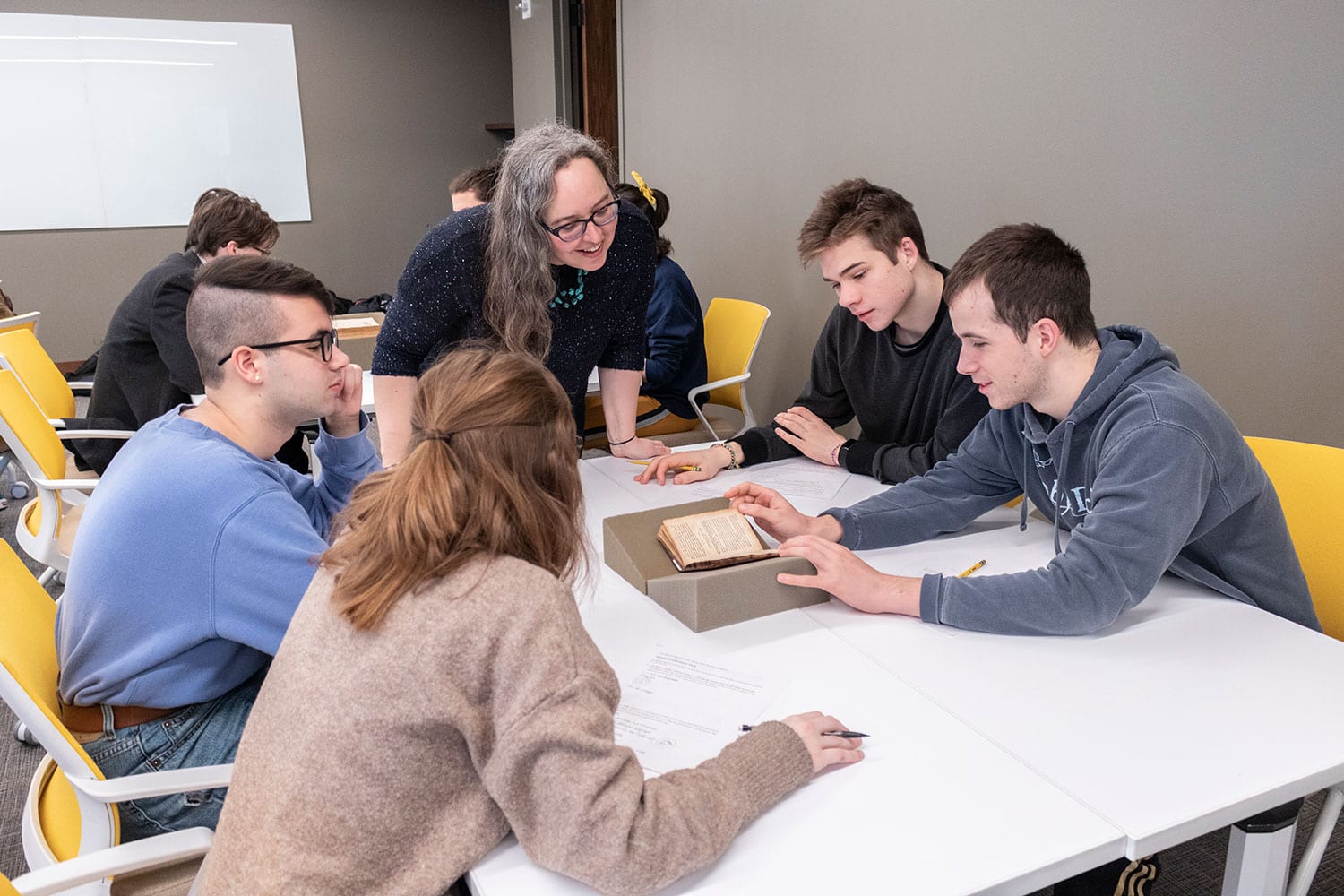Class Name: “Ethics and Use of Mathematics with a Focus on Antiracism”
Taught By: Assistant Professor of Mathematics and Statistics Tarik Aougab and Associate Professor of Mathematics and Statistics Elizabeth Millićević
Says Aougab:
The class is largely about understanding how engaging in mathematics is to engage in a human activity, performed by and for human beings. As with any other human endeavor, its evolution is subject to political considerations, to cultural influences, and to social movements. But, unlike most other human endeavors, mathematics has a reputation for being totally divorced from humanity. This wasn’t always the dominant view; in fact, it’s a fairly recent perspective on mathematical thought. And, ironically, as this view of mathematics as some sort of pristine, austere realm totally separate from human concerns grew in prevalence, it greatly impacted the practice of mathematics and the course of mathematical discovery, thereby demonstrating the role that culture and sociology can play in mathematics!
In any case, one side effect of this faulty view is that, at least relative to other scientists, mathematicians have barely devoted any serious energy to developing an ethics for how math should be done. If there’s no connection to humanity and if what we do has no bearing on the living, physical world, why would we need to think about ethics? Of course, mathematics does play a huge role in all of our lives. Besides being in part responsible for the technology that surrounds us—and in some ways, completely runs our lives—mathematics is granted an incredibly privileged intellectual position; people tend to respect math, and are much less likely to question conclusions that look like they were arrived at through a mathematical process.
One of the recurring themes in the course is how governmental authority and law enforcement often exploit this. For example, the first topic we cover is predictive policing, the use of advanced mathematics to write computer algorithms which purport to predict where crime is likely to happen in the future. An estimated 1 in 33 Americans falls under the jurisdiction of a police department using this sort of software. The algorithms work by looking for patterns in past crime data. Of course, if there are major biases in how the law is enforced by the police, those biases will be reflected by the data, and then the algorithm will perpetuate the biases in whatever predictions it outputs. And indeed, there’s evidence which suggests that these algorithms change little to nothing about how the police operate, but they do provide police with a justification for their actions that looks and sounds scientific.
If a mathematician knows this, is it ethical for them to work on such algorithms? There’s no clear answer, and how a mathematician chooses to navigate that decision depends heavily on their sociocultural and political views. Some would argue that if the algorithms perpetuate bias, scientists should work even harder on them to eliminate those biases, whereas others have argued that American policing is fundamentally racist and thus that it’s unethical to provide the police with a mathematical veneer of legitimacy. In our class, we talk about all of this–the underlying mathematics, the controversy, and the surrounding politics.
I co-created [this class] with five other mathematics faculty members last year, and I wanted to create and teach this class because I was tired of feeling like a robot in my life as a mathematician. The impetus for the class was the Black Lives Matter rebellion that occurred over the Summer of 2020, sparked by the police murder of George Floyd. In the world around us, people were dedicating serious time and space to thinking critically about the role of policing in our society, and engaging with extremely radical ideas. As a police and prison abolitionist, I felt that these discussions were long overdue and sorely needed. On the other hand, none of them were happening in mathematical spaces. When I wasn’t teaching or pursuing my academic research, I was participating in these important, complicated, and often deeply emotional conversations, but it all had to be shoved away the minute I stepped into the classroom. It would be one thing if mathematics just had no connection whatsoever to these issues, but of course, as mentioned before with predictive policing and the many other technologies that mathematical scientists provide the police, it very much does. And it felt robotic, unnatural, and alienating not to be talking about it with students.
This course is totally unique in our department, and for several reasons. First, it’s a seminar-style class that is based entirely on group discussion and readings. Second, it’s universal pass/fail, which I think is appropriate for a course focusing on modes of engagement that no mathematician in our department has been professionally trained to evaluate. As instructors, we’re also learning about this material and how to curate it in a classroom setting. Third, the final project in the course is to create pedagogical materials focusing on some topic we covered during the semester, and which could potentially be implemented into another one of our courses in the department. This gives students a unique opportunity to play an active role in shaping our other curricula, and it gives us a chance to integrate ethics more organically into the rest of our courses.
Learn more about other courses offered by the Department of Mathematics and Statistics.

